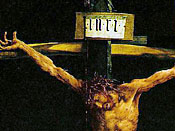
The readings for this Sunday 30th January, the 4th Sunday after Epiphany are from Micah 6:1-8, Psalm 15, 1Corinthians 1:18-31 and Matthew 5:1-12
A manifesto is a grand idea
A statement of beliefs and principles
which undergird what we are trying to do.
One such is alongside
it is a conservationist manifesto
And it's about repairing instead of throwing away.
It has a number of interesting points, 11 in all
2. Things should be designed so that they can be repaired
10. Repairing is about independence
What we have this morning is three manifesto like readings and a psalm manifesto
Micah says
What does the Lord require of you:
but to do justice, and to love kindness
and to walk humbly with your God (Micah 6:8)
This is a powerful manifesto.
If you want to know what God's person does
it is not about being smart, powerful, rich or succesful
It is to be an agent of justice,
to live life with kindness
and to always walk remembering that we are creaturesnot the creator
Justice, kindness and humility....if you want three buzz words to check
the quality of your actions then they work
Is what I am doing just?
Is it kind?
Does it reflect my ultimate submission to God?
Paul reminds his fellow Christians in Corinth
with this manifesto:
We proclaim Christ crucified
God's way is not the way of the world he says God chose what is foolish to shame the strong
and the source of your life is Christ Jesus
an important manifesto. The Cross, the strength of God and Jesus
Jesus
In the passage so often seen as Jesus's manifesto...the Beatitudes (Matthew 5:1-12)
Jesus points us to various places where we might find God's holiness and transformation of our lives
Places where we might look to see the work of God
and, it needs to be remarked,
places where we might often miss the powerful presence.
Not in the life of the expert: but those who are poor in spirit
Not with the proud and the successful, but the meek and lowly
Where we mourn
where we hunger and thirst for what is right
where peace is being proclaimed and worked at
the need for purity of heart
at places where good is being tested, and even persecuted
and never to forget
that it is when we are being ridiculed, picked on and victimised
for doing what is right that we are blessed.
So there is a comprehensive manifesto to follow
if that's what engages us
The Comprehensive Manifesto
*Justice, kindness and mercy
*The Cross, God's wisdom, focus on Jesus
* poverty of spirit, comfort in the face of death, humility and meekness, the thirst for what is right, mercy, purity of heart, peace making, fighting for what is right, and being prepared to suffer for what is right
It rather makes our minds reel
but let it not do that
let us see it as the standard that we hold
to keep ourselves connected to Christ.
THIS WEEK
Perhaps take one of those items from the manifesto
and ask yourself
What does this mean for me?
What can I do this week to deliberately implement the Christian manifesto?
And then
Do it!














